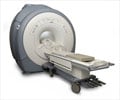Some US-based firms are seeking to use MRI technology to treat pain and even such psychological problems like stress and addiction.
A variant of MRI, called real-time functional magnetic resonance imaging, or fMRI is used to measure blood flow to different parts of the brain.Using large scanners, the technology makes the brain’s activity visible by revealing which of its parts are busiest when we perform different tasks.
Omneuron, a Californian firm building its hopes on fMRI, says this is how it works - A patient slides into the coffin-like scanner and watches a computer-generated flame projected on the screen of virtual-reality goggles; the flame’s intensity reflects the neural activity of regions of the brain involved in the perception of pain. Using a variety of mental techniques — for instance, imagining that a painful area is being flooded with soothing chemicals — most people can, with a little concentration, make the flame wax or wane. As the flame wanes, the patient feels better. Superficially similar to an older technology, electroencephalogram biofeedback, which measures electrical feedback across multiple areas of the brain, fMRI feedback measures the blood flow in precise areas of the brain.
“We believe that people will use real-time fMRI feedback to hone cognitive strategies that will increase activation of brain regions,” Christopher deCharms, the chief executive of Omneuron, said.
With practice and repetition, he felt, this could lead to “long-term changes in the brain.”
In time, he hopes, a patient could evoke the effect without the machine.
Advertisement
If fMRI proves effective in treating pain, it could be big business. According to the American Chronic Pain Association, one in three Americans will experience chronic pain at some point in life. At any one time, more than 50 million Americans complain of pain. And Dr. deCharms contends that fully one-third find their pain resistant to traditional treatments like narcotics. Omneuron’s technologies could offer such patients some relief, and without side effects.
Advertisement
But Dr. deCharms says that controlling pain is just one of many possible uses for fMRI feedback. Today, Omneuron is also researching treatments for addiction, depression and other psychological illnesses. In addition, he said. the company has contemplated “several dozen applications,” including the treatment of stroke and epilepsy. Brain scanning could even be used to improve athletic performance, he speculated.
Doctors and drug-abuse experts are particularly excited about the idea of treating addiction using fMRI. While scientists have talked about such an application since the technology was invented, Omneuron is the first to work on a real therapy. “We might have a tool to help control the inner sensation of craving,” said Nora D. Volkow, director of the National Institute on Drug Abuse, which helped fund Omneuron’s research into addiction.
A growing number of ventures hope to turn fMRI into a business. The most well-publicized is No Lie MRI, which wants to sell brain scanning to law firms and governmental bodies like police departments or security and intelligence agencies as a replacement for the notoriously unreliable polygraph test. No Lie MRI has already begun selling what it calls its truth verification technology for about $10,000 to individuals keen to prove their innocence.
Other brain-scanning ventures include Cephos, another lie-detection company, and Imagilys, which sells fMRI to surgeons who want to map the brains of patients before operations.
For its part, Omneuron would make money not by building fMRI centers — which are expensive and fairly common in larger hospitals — but by selling clinical skills, software and equipment.
“I imagine the business model would be akin to Lasik eye surgery,” Dr. deCharms says. “We’d provide the technology to outpatient treatment centers.”
There are challenges to the commercialization of brain scanning, and the most important may be regulatory. Clinical trials can take many years, and federal approval is famously unpredictable. But until clinical data and federal approval are forthcoming, Dr. deCharms says, Omneuron cannot sell its technology as a clinical treatment.
If Dr. deCharms and Omneuron are successful, and can teach us to train our brains to manage neurological and psychological conditions, they will have given us something that has challenged philosophers, psychologists and yogis alike: gaining some reliable control over our own thoughts.
Source-Medindia
GPL/J











